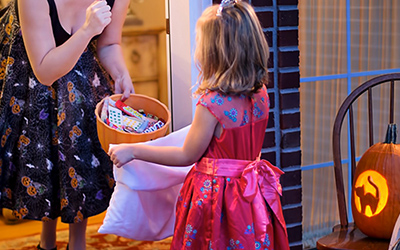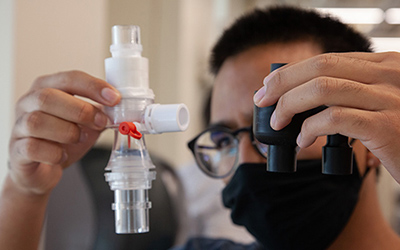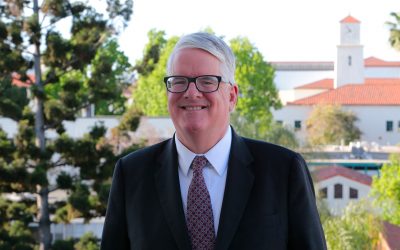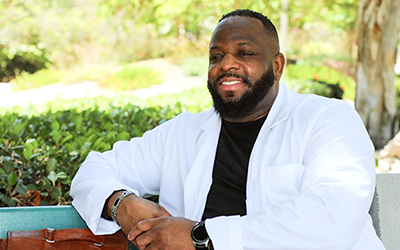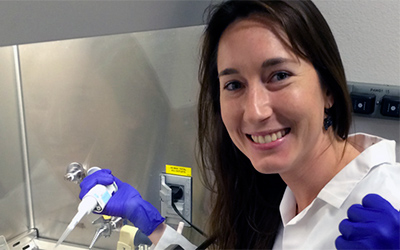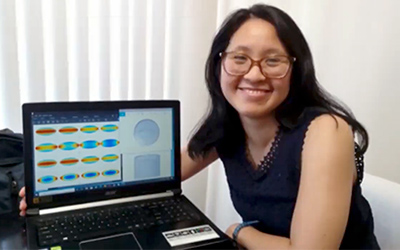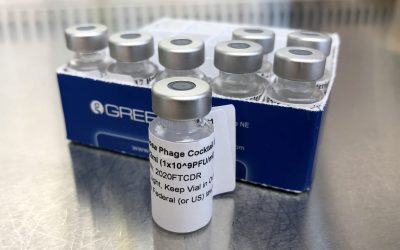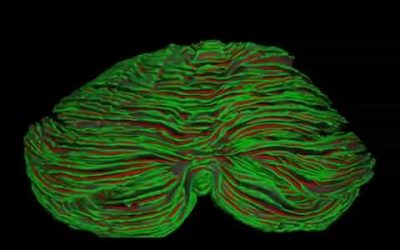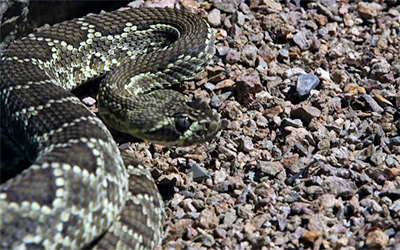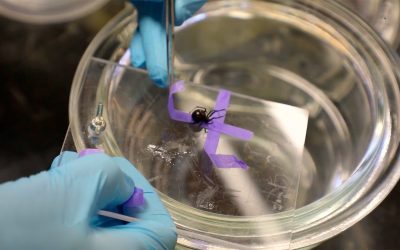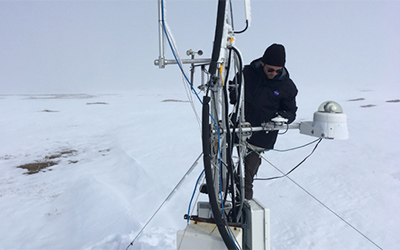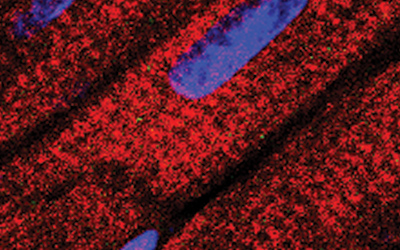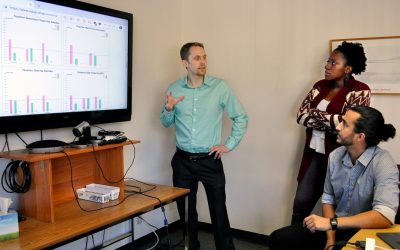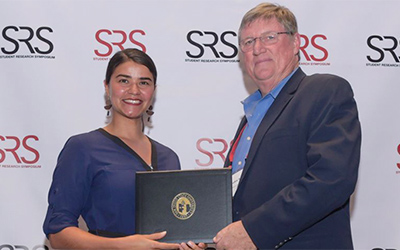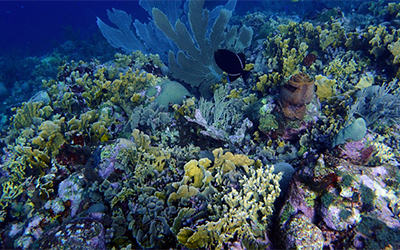News Archives from the College of Sciences
Halloween 2020: More Risk from Fellow Trick-or-Treaters than the Loot
Researchers say viral transmission risk is low, even when candies are handled by infected persons, but hand washing and disinfecting collected treats reduces risk even further.
Public Trust in Science on the Rise during COVID-19 Pandemic
Conservation ecologist and biology professor Rebecca Lewison concurred, observing that COVID-19 has demonstrated that through coordinated action, daunting challenges can be tackled efficiently.
SDSU Faculty Lead Collaborative COVID-19 Research Efforts: Health Care
Biology professor David Lipson is partnering with San Diego biotechnology company Menon Biosensors and UCSD researchers to develop a new COVID-19 test using a combination of molecular biology and nuclear magnetic resonance technology.
Capturing the First Image of a Black Hole
The Event Horizon Telescope, a planet-scale array of eight ground-based radio telescopes forged through international collaboration, captured this image of the supermassive black hole in the center of the galaxy M87 and its shadow. (Image: © EHT...
Jeff Roberts: Laser Focused on Research
The dean of the College of Sciences gained early exposure to research opportunities and wants to ensure SDSU students do too. His priority is to ensure the high-caliber faculty recruited by the college have the resources to take their research to the next level.
SDSU Named to Consortium for Terrorism Prevention and Counterterrorism Research
SDSU’s Homeland Security Graduate Program co-directors, Eric Frost and Lance Larson, will use additional funds provided by the award to deliver an education of the Homeland Security Enterprise with focused training on cyber and open-source intelligence to build up existing and future DHS needs and opportunities and solve real problems as a means to learning.
A Will to Learn and Inspire
Deva Reign assisted with humanitarian relief in Haiti for the U.S. Navy, built satellites at the Hughes plant in El Segundo and recorded his own rap albums — but only now is Deva finding his place in a field that has fascinated him since childhood.
To Repair a Damaged Heart, Three Cells are Better Than One
“At 20 weeks we were still able to see the cells,” Monsanto said. “Our design takes advantage of the inherent beneficial attributes of three distinct cardiac cell types, each known to possess beneficial properties that blunt heart disease in their own way.”
Hydroponic Strawberries, Ancestry, Lung Tissue and Math, and Immersive Theater
Senior Dewayani Windy, an applied math major, used computational simulations to study how lung tissue grows and branches out to form airways. She learned to use math equations to describe complex biological processes.
New Guidelines for Phage Preparation Can Accelerate Lifesaving Treatment
“Many of our patients have so little time, so speed is of the essence and this protocol would really make a difference, since one run can produce enough doses to treat a patient for months.”
‘Little Brain’ or Cerebellum — Not so Little After All
Neuroscientist Martin Sereno, director of the SDSU MRI Imaging Center, and his collaborators discovered the cerebellum is much larger than previously understood, enabling future advances in research.
Hot or Cold, Venomous Rattlesnakes Still Quick to Strike
In nature, how quickly a creature moves can mean the difference between life and death. Venomous rattlesnakes defend themselves by uncoiling and striking out when faced with predators or prey.
Spiders, Doomed Flies, and Tougher Textiles — Just Add Water
A DoD grant will help SDSU’s Gregory Holland further explore spider silk and its possible application toward incredibly tough biomaterials.
In the Arctic, Spring Snowmelt Triggers Fresh CO2 Production
New research from San Diego State University finds that water from spring snowmelt infiltrates the soil and triggers fresh carbon dioxide production at higher rates than previously assumed.
Reducing the Damage of a Heart Attack
SDSU researchers have discovered how a key protein can help the heart regulate oxygen and blood flow and repair damage. In a heart attack, a series of biochemical processes…
Classroom Equity App Gets NSF Grant
A nearly $1 million grant for SDSU’s Daniel Reinholz will allow further exploration of a tool to reduce longstanding forms of implicit bias.
Inquiring Minds: Student Researchers Shine at CSU Competition
Student research on heart tissue, bone replacement and how black adolescent girls identify themselves at school won accolades for San Diego State University students in a statewide competition.
Corals Face Threat from Tiny Enemy
Climate change and environmental stressors are not the only threats for coral reefs worldwide. Overfishing allows other reef organisms such as algae to crowd out corals. This has a snowball effect that alters the battlefield corals face.
